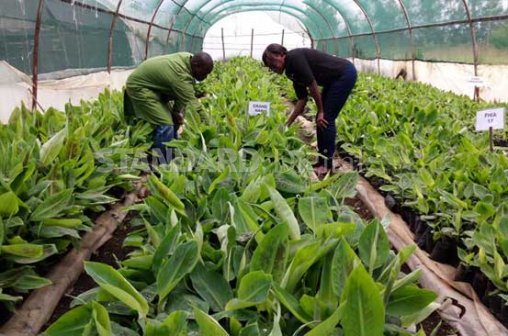×
The Standard e-Paper
Kenya’s Boldest Voice

With more farmers embracing the high yielding tissue-culture bananas, demand for its seedlings has gone up.
Enter Joyce Macharia, 36, a biochemist from Ngata in Nakuru County. Armed with vast knowledge and experience in plant science, Macharia developed China Kenya Laboratory, an industrial laboratory to supply farmers with disease-resistant, fast maturing and high yielding tissue-culture banana seedlings.